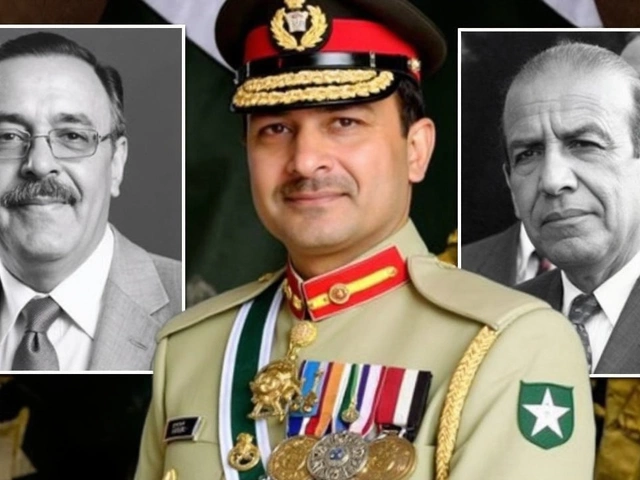General Asim Munir Named Field Marshal as Pakistan Faces Military and Political Crossroads

General Asim Munir's Rare Promotion to Field Marshal Shakes Pakistan
General Asim Munir has just been given a title almost unheard of in Pakistan: Field Marshal. This move isn’t just about military medals or uniforms—it’s about power, politics, and Pakistan’s struggle to navigate another turbulent chapter both inside and outside its borders. To put this in perspective, Munir is only the second person ever to get this honor, the last being Ayub Khan, whose name is still tied to military rule and dictatorship in the country. That was six decades ago.
The timing couldn’t be more charged. Just weeks earlier, India and Pakistan were at each other’s throats again after the Pahalgam attack in April. India responded with Operation Sindoor, striking targets across the border and leaving Pakistan’s military infrastructure visibly bruised. Instead of shying away, Pakistan’s government doubled down and handed Munir the highest rank, a move that caught the attention of politicians, analysts, and everyday citizens alike.
Unlike past promotions, where high military honors followed sweeping victories, Munir’s rise comes on the heels of setbacks. Some Pakistani bases and key infrastructure were hit hard in the recent skirmishes. That’s why plenty of experts are raising eyebrows at this decision. People like Tilak Devasher, with years of experience studying the region, point out how this title is usually reserved for leaders after decisive wins—not during moments of crisis or military strain.
Political Maneuvers and the Shadow of Past Dictatorships
The story doesn’t stop with military calculations. Behind closed doors in Islamabad, realpolitik seems to be at work. According to several insiders, Pakistan’s federal cabinet, led by Prime Minister Shehbaz Sharif, approved Munir’s promotion not just to praise his command but to protect him. The move is seen as a way to give Munir extra authority—and perhaps legal cover—at a time when political rivals might try to drag him into courtroom battles or even remove him from power.
To secure his standing, Pakistan’s lawmakers already passed an amendment in November 2023 that gave Munir at least two more years as Army Chief, extending his influence until 2027. So, the Field Marshal rank looks less like a medal for military brilliance and more like political armor.
This has stirred plenty of anxiety. Many remember Ayub Khan’s brief as Pakistan’s only previous Field Marshal: his reign followed a military coup and ended up centralizing power in the army’s hands, weakening democratic institutions. Now, as Munir takes up this historical rank, critics warn it could shift the delicate balance between civilian government and the military yet again. Some fear this is how coups begin—a powerful general, delivered broad, unchecked authority by a nervous or cornered leadership.
Yet Munir seems keen to put a different spin on his promotion. In his first statement after the news broke, he offered grand words of self-sacrifice: "This honor is the trust of the nation, for which millions of Asims can be sacrificed." It’s a line aimed at rallying the ranks and calming the public, even as uncertainty lingers about where Pakistan’s democracy is headed—and whether this historic military appointment will push the embattled country closer to stability, or take it back down some darker old roads.

